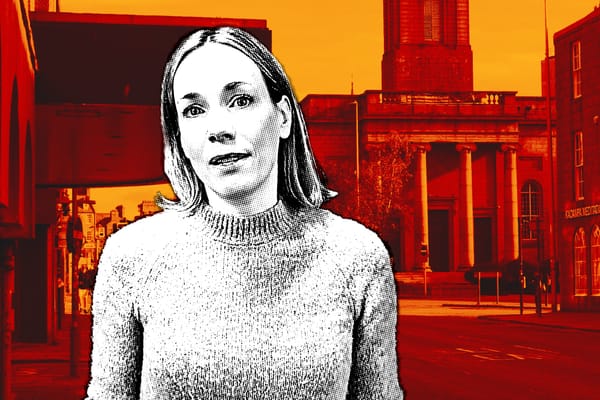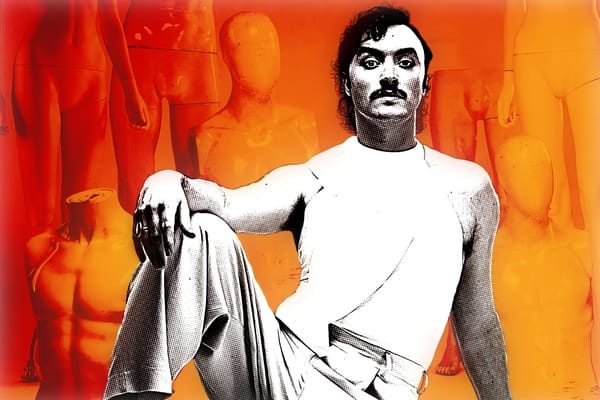Ian Watt from Code the City on Open Data

You may have read about Open Data while browsing the internet, or reading the news. However, to many of us it remains subject that seems important but we’ll get to it one day. Well, postpone no more. We reached out to Ian Watt, cofounder and trustee of Aberdeen charity Code the City. We asked him to tell us about the fantastic civic benefits of open data. He also takes a look at whether our local and national governments are performing well on delivering both the benefits and the data. Grab a cuppa and enjoy.
Over to Ian…
When we started Code the City in Aberdeen 2013 we were driven by the idea that everyone should understand data and should know a little bit about code (the stuff that makes computers, smart phones, gaming devices and even TVs work). We subscribed to the notions that data should be free and open, and that “coding gives you superpowers” as Michael Kennedy puts it: no matter what your job (journalist, doctor, historian, office admin assistant, photographer, astronomer, musician …) being able to code will boost what you can do.

We’ve continued to run events for the last seven years, mostly in Aberdeen and across Scotland. People can join in with others to share and learn, and to work on real world problems while they do so. We’ve also run kids coding classes, created a monthly data meetup, initiated a regular user group for those who code in Python, run workshops and research projects, and started the annual Scottish Open Data Unconference. Many of these activities have been designed to increase data literacy of participants in a way that is relevant to their role or interests. We see data literacy as a key skill for these times.
In the remainder of this article I am going to concentrate on the importance of open data to what we do – and also to Aberdeen in particular.
What is open data?
Open Data is data which is freely available to everyone to use and republish as they wish, without restrictions from copyright, patents or other mechanisms of control. This data can come from any source but is mostly associated with the public sector.
Why do we need it? What are the benefits?
If you have used the City Mapper app on your phone – or GPS or Google Maps to move around – then you are a user and beneficiary of open data. If you’ve looked at newspapers’ dashboards on the spread of Covid or Vaccine rollouts then you’ve benefited from open data.
Publishing open data is proven to stimulate innovation, foster trust and transparency. Furthermore it would deliver economic, educational, social, environmental and other benefits.

The February 2020 report by the European Data Portal – The Economic Impact of Open Data – sets out a clear economic case for open data. From that we can see that if Open Data was being provided robustly and at scale in Scotland as it is in mainland Europe then the value to the Scots economy would of the order of £2.027bn to £2.266bn per annum. Sadly that is not happening in Scotland – despite some of our efforts over the last decade. Our estimate is that it is currently worth about 0.01% of that!
What data do we need?
In a perfect world you would have access to data such as
- The air quality in your area
- How much your education authority spends on books in your kids’ school compared to others
- Where are the potholes in your locale? When were they reported? When were they fixed?
- Planning applications in your neighbourhood
- How clean a local loch is to swim in, and its current water temperature
- Where the electrical vehicle charging points are on your route south
- Food hygiene inspections of all city restaurants which can be linked to online ordering
- Adult literacy rates in each council ward
- etc.
If you are data literate then the raw data might be interesting and of use to you. Otherwise people with entrepreneurial skills such as those taught at RGU could build new products or services using this data just as City Mapper and other apps help us make sense of raw data. That activity would attract investment, create jobs, and stimulate demand for skills – and business space – in the city.
Currently Aberdeen City Council publishes 16 data sets as open data. Leaving aside the observation that these are static and not currently maintained, as a comparison here are some EU cities:
- Berlin – 2,192 open data sets
- Helsinki – 635 open data sets
- Barcelona – 503 open data sets
- Amsterdam – open 316 data sets
Historical context and the current situation
The UK Government signed the G8 Open Data Charter in 2013 committing itself to publish data openly. As a result, the UK as a whole was for a while the leader in Open Data worldwide.
The Scottish Government published its Open Data Strategy in 2015 committing that data in Scotland would be open by default. Sadly there has been little to show for that commitment and we’ve largely wasted the six intervening years.

The Scottish Cities Alliance, which represents all seven Scottish Cities, have tried to push forward the open data agenda as part of their Smart Cities programme. However the results to date have been at best inconsistent. Early leaders Glasgow faded but are now starting to do some good work again. Edinburgh similarly were great to start with, then appeared to give up. They have now committed to a Data Driven Innovation programme linked to their Smart Cities approach. Dundee, Perth and Stirling have been most consistently committed and are putting real effort into open data publication.
Who isn’t doing so well?
The lame horses, sadly, are Inverness and Aberdeen who have dropped out of the programme. The latter case is especially sad when we consider that Aberdeen was the trailblazer in open data in Scotland. It published not only the first open data by any Scottish local authority in 2010 but what is considered to be the first open data of any public body in Scotland. [Full disclosure – I was responsible for that publication when I worked there.]
Sadly the current state of open data in Scotland is extremely poor. What happens at a governmental level is mostly done grudgingly and without enthusiasm. It is underfunded and has no long-term approach or sustainability. At a city level it’s worse. The publication of open data is seen as a burden or overhead – and not an opportunity to deliver the economic, social, environmental or educational benefits that we know that it will deliver. It misses the opportunity to foster trust through transparency. And it starves the educational process at all levels of raw material that could drive engagement in STEM and enliven the curriculum in a particularly meaningful way.
None of this should detract from the dozen or so committed civil servants and local government officers across Scotland who do their very best to advance open data – either with indifference from above or, in many cases, despite a complete lack of political or managerial support.
What needs to change?
As we’ve seen the current situation is poor – locally and at a Scotish level. The Scottish Government strategy has no teeth. There are no consequences to a government department or council failing to publish data openly. The actions in the strategy go no further than 2017. This has provided the perfect conditions for complacency and non-delivery.
Funding for open data projects where it exists tends to be short term. There can be no confidence that data publication platforms will be there in a year or two’s time. Inverness switched theirs off after a year, having spent £10,000s of funding on it.

We need to view the publication of open data as part of a commitment to the economic success of a country or region. It should be funded just as we fund other infrastructure, with a view to it underpinning long term development. We don’t create roads, bridges, railways, electricity grids or water supplies on the basis that they might disappear next month. They will exist for decades or centuries – and people know that they can rely on their being there – and build on them: locating factories, offices, homes along the infrastructure which has been created.
We should take the European view – and not only invest in the publication of open data but in education in its use, and provide stimulus funding to startups to create new products and services.
Summary
Open data promises to deliver so many benefits to Aberdeen and Scotland as a whole if only it were done well. But it’s not: strategies to deliver open data are ignored – and doing so has no real consequence to those who ignore them; funding, if it exists, is short term; and there is no recognition of the need to treat data as infrastructure. Consequently potential benefits – particularly economic – are not delivered. At one time Aberdeen was at the forefront of open data in Scotland. Thanks to Nesta funding it had the opportunity engage on the European stage with the leading cities there.
We should be clear – this is about a failure of leadership nationally and locally. The council is depriving the city of potential income, job creation, and the retention of graduates. Schools – which need to get young people engaged in STEM education – are deprived of the very raw material which would make that possible and attractive.
At Code the City we continue to work with citizens and support the sharing of skills and knowledge. We work with local charities and various public sector organisations to help them better understand and use technology and data. We encourage the creation of open data, and help make that happen.
But we need to start holding our political leaders to account, nationally and locally. Each is letting down youngsters, stifling innovation and depriving the economy of much needed stimulus. How much longer can we allow this to go on?

About Ian Watt
Ian is a co-founder and trustee of Code The City, an Aberdeen-based charity which uses tech and data for civic good. He is a non-exec director of Democracy Club, a UK community interest company which uses crowd-sourced open data to better engage citizens in the democratic process. He is on the steering group of Data Commons Scotland, a Stirling University programme which is looking at how we can better use open data across the whole waste management cycle in Scotland. Furthermore, he’s an Ambassador for both Open UK and Data Lab Scotland. Until May 2021 he was the civic society lead for open data in the Open Government Plan development for Scotland. He writes regularly about open data in Scotland.
If you’d like to keep up to date with Code the City, you can sign up to the newsletter here.
Further reading
A huge thanks to Ian from Code the City for taking the time to write this article. If you enjoyed this article, you may enjoy an article by Neil Innes from Ride the North about whether Aberdeen is delivering on its commitment to become a cycling city. If you would like to write an article for POST, check out our Share Your Content page. Stay up to date with what we’re up to, sign up to our monthly newsletter.
About POST
Kevin Mitchell and Chris Sansbury founded POST. This was from a desire to cut through the noise to share the great things that happen in Aberdeen. They focus on community, culture and also the interesting people of the city. The local artists, businesses and charities; photographers, musicians and entertainers. These are the people that make a positive impact on our city every day. So they use video, audio, writing and social media to amplify the voices in our community. And to ultimately give a platform to Aberdeen folk to engage and tell their own stories.
Recent work includes coverage of Spectra 2023, interviews with We Are Here Scotland founder Ica Headlam; Paralympic gold medalist, Neil Fachie; Aberdeen rapper Chef and his push for success; an article about the pedestrianisation of Union Street; coverage of Nuart Aberdeen and TEDx Aberdeen, as well as coverage of the campaign to Save the Belmont.
We are independent and entirely self funded. We just about cover our costs, but if you would like to help support our work, you could buy us a coffee.





